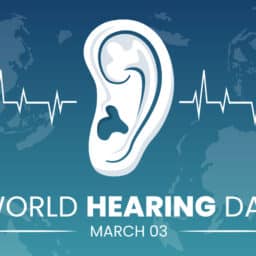How Untreated Hearing Loss Affects Overall Health

The average hearing loss patient waits seven years before seeking help, which can take a toll on their quality of life.1 The longer someone puts off getting treatment, the more likely they are to face negative consequences for their well-being—hearing loss is linked to several common health conditions. The Impact on Your Health Your brain…
Medicare and Hearing Health Care

Approximately one in three individuals between the ages of 65 and 74 experience hearing loss, and nearly half of individuals older than 75 experience difficulty hearing. Currently, Medicare does not cover most hearing care services and devices. What is Medicare? Medicare is a federal health insurance program for individuals 65 and older and certain younger…
Better Hearing Month

May is National Better Hearing Month, and the American Academy of Audiology is urging the public to be aware of the importance of good hearing health. The National Institute on Deafness and Other Communication Disorders reports that 37.5 million Americans experience hearing loss and that approximately 28.8 million adults in the U.S. may benefit from…
What is Unilateral Hearing Loss?

What is Single Sided Deafness? Sometimes referred to as unilateral hearing loss, single sided deafness is a condition in which an individual experiences hearing loss in only one ear but can hear normally out of the other ear. While most patients with a hearing impairment suffer from bilateral (two-sided) hearing loss, SSD affects approximately 60,000…
What is Sudden Hearing Loss?

For most people who experience hearing loss, the condition comes on gradually over a period of years. In rare cases, an abrupt loss of hearing occurs with little or no warning. This condition is known as sudden sensorineural hearing loss (SSHL). What is Sudden Deafness? Sudden deafness is an unexplained and rapid hearing loss that…
What is Noise Induced Hearing Loss?

How Can Sounds Hurt Your Ears? Background sound is a constant in our busy lives. Normally, background noises are at safe levels that do not negatively impact our hearing. But repeated exposure to noise above 85 decibels (dB) can cause noise induced hearing loss. The louder the sound, the less amount of time it takes…